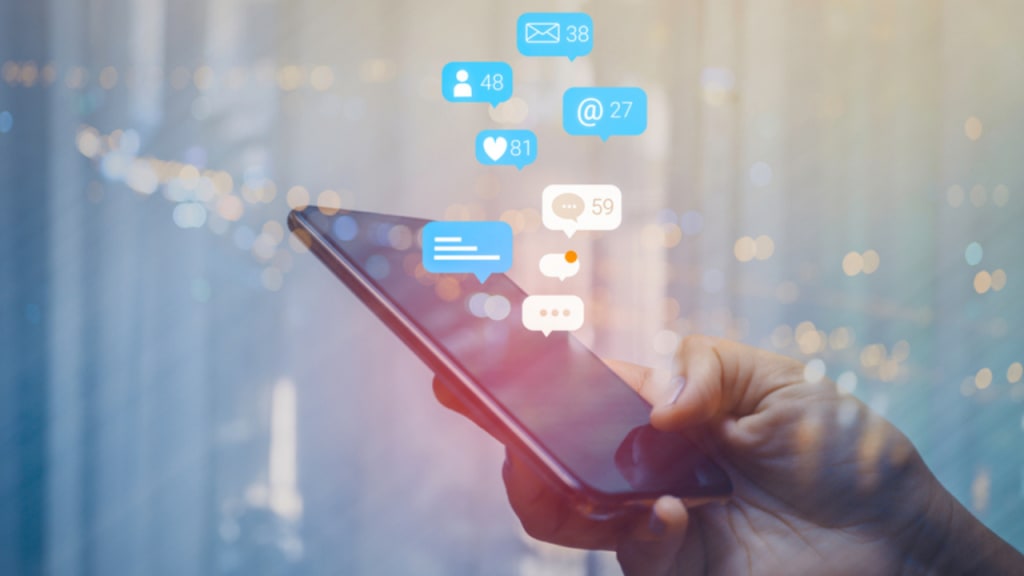The Impact of Social Media
Exploring the Social Impact of Social Media

Introduction:
In today's interconnected world, social media has become an integral part of our lives, changing the way we communicate, share information and interact with each other. Platforms like Facebook, Instagram, Twitter and Snapchat have revolutionized the way we communicate, but they also have some implications that deserve careful consideration. This article explores the impact of social media on society and its impact on mental health, self-esteem, privacy and the spread of misinformation.
I. Mental health: The dark side of social media:
The pervasive influence of social media has caused both positive and negative effects on mental health. While it provides opportunities for social connection and support, it can also contribute to feelings of loneliness, anxiety and depression.
Fear of Lack (FOMO):
Social media platforms often show carefully curated and idealized versions of people's lives, leading to fear of missing out (FOMO). Constant exposure to the seemingly perfect lives of others can trigger feelings of inadequacy and create feelings of exclusion that increase stress and anxiety.
Cyberbullying and online harassment:
The anonymity of social media platforms can encourage cyberbullying and cyberbullying. This form of digital bullying can have serious consequences for people's mental well-being, leading to increased depression, anxiety and even suicidal thoughts. Comparison and negative self-esteem
The comparison culture of social media can significantly affect an individual's self-esteem and body image. Constant exposure to carefully manipulated images can create unrealistic beauty standards, leading to negative self-esteem and body dissatisfaction.
II. Development of self-esteem and identity:
Social media has had a major impact on how people see themselves and construct their identities. Although it can provide a platform for self-expression and personal growth, it also presents challenges that can affect self-esteem and identity development.
Pressure to perform:
The need to fit in and gain social approval on social media platforms can lead individuals to present an idealized version of themselves according to social norms and expectations. This pressure to conform can inhibit authentic self-expression and undermine self-esteem.
Validation and self-assessment:
Likes, comments and shares have become social currency on social media. Validation and acceptance through engagement metrics can affect individuals' self-esteem. Relying on external validation can lead to a fragile sense of self-esteem because it depends on the reactions of others.
III. Privacy Issues and Data Use:
The widespread use of social media has raised serious concerns about the protection of privacy and the use of personal information. Platforms and third parties collect, analyze and often monetize user data, which leads to potential data breaches and data misuse.
Data Collection Practices:
Social media platforms collect large amounts of personal information from users, including demographic information, preferences and online behavior. Combining and analyzing this data can lead to targeted advertising, manipulation and possible misuse of personal data.
Privacy Settings and User Awareness:
Although the platforms offer privacy settings, they can be complex and difficult to navigate. Users may not fully understand the implications of sharing personal information or providing access to their information. User ignorance and lack of understanding can make individuals more vulnerable to privacy breaches.
IV. Spread of misinformation and fake news:
The ability of social media to spread information quickly has also contributed to the spread of misinformation and fake news. This phenomenon has important consequences for public opinion, political debate and social trust.
Echoes and confirmation bias:
Social media algorithms often provide users with content that matches their existing beliefs and preferences. This can create echo chambers, reinforce mountain bias, and limit exposure to different viewpoints. In such an environment, misinformation and conspiracy theories can spread.
The spread of the virus and the lack of fact-checking:
The rapid sharing of information on social media can lead to the spread of false information without proper fact-checking. This can have real consequences such as public health crises, political polarization and social unrest.
Conclusion:
The impact of social media on society is undeniable, and its impact goes beyond communication and interaction. While this brings a number of benefits, including better social connections and access to information, it also presents significant challenges. Awareness of the impact of social media on mental health, self-esteem, privacy and the spread of misinformation is crucial for individuals, decision-makers and platform developers to ensure a healthy and responsible digital environment.
About the Creator
Reader insights
Outstanding
Excellent work. Looking forward to reading more!
Top insights
Compelling and original writing
Creative use of language & vocab
Easy to read and follow
Well-structured & engaging content
Excellent storytelling
Original narrative & well developed characters
Expert insights and opinions
Arguments were carefully researched and presented
Eye opening
Niche topic & fresh perspectives
Heartfelt and relatable
The story invoked strong personal emotions
Masterful proofreading
Zero grammar & spelling mistakes
On-point and relevant
Writing reflected the title & theme






Comments
There are no comments for this story
Be the first to respond and start the conversation.